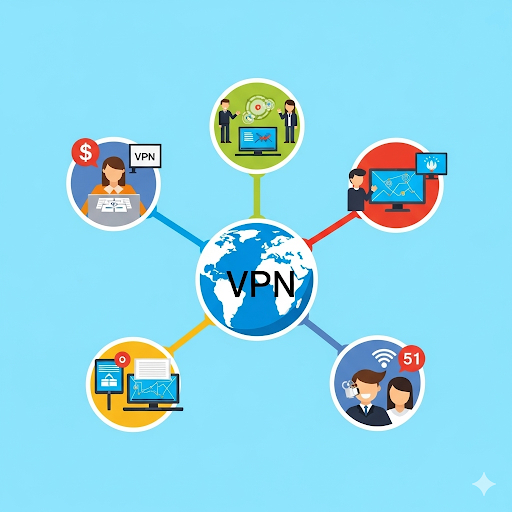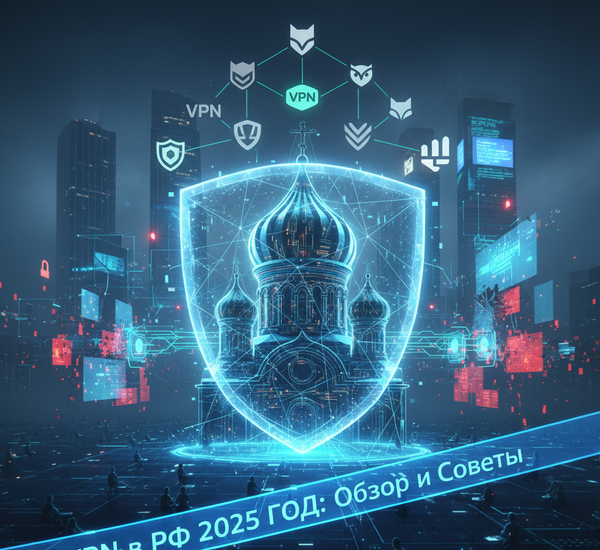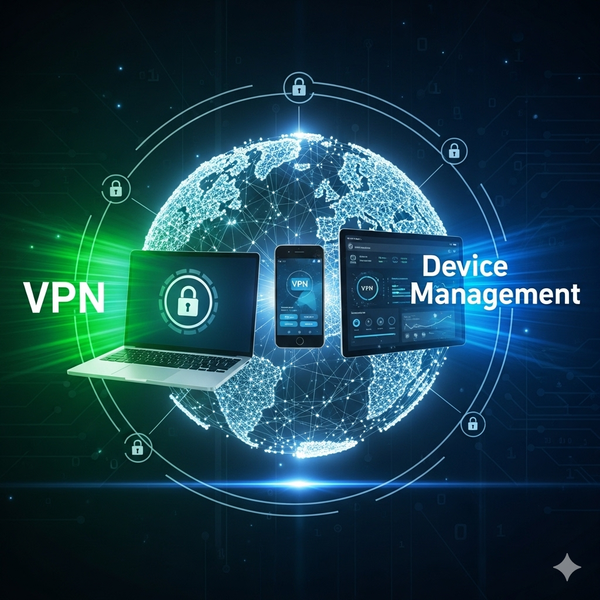A Comprehensive Guide: Where VPN is Used and Why It's Indispensable in the Digital Age

1. Introduction
In an age where our lives are increasingly intertwined with the internet, the question of digital privacy and security has never been more critical. From shopping online to streaming our favorite shows, nearly every aspect of our daily routine leaves a digital footprint. This footprint can be tracked, analyzed, and even exploited by a variety of third parties, from advertisers and internet service providers (ISPs) to malicious actors. This is where the concept of a Virtual Private Network, or VPN, becomes so important. A VPN acts as a shield, but many people still wonder, "where is VPN used?" The answer is far more encompassing than you might think. A VPN is no longer a tool just for tech experts; it has become a vital utility for anyone who values their privacy, security, and access to a truly open internet. It’s a versatile solution that addresses a wide range of modern digital challenges, from the mundane to the highly critical.
To understand its value, we need to look at the many scenarios where a VPN is used. Whether you're a casual internet user trying to protect your data on public Wi-Fi or a professional needing secure access to a corporate network, a VPN provides a solution. It's a fundamental technology that has evolved to meet the demands of a world where our personal and professional lives are lived online. The key to unlocking its full potential lies in understanding its diverse applications. From enhancing your personal privacy to giving you access to a world of content, the reasons a VPN is used are numerous and compelling.
2. The Core Use Cases: Everyday Life
The most common scenarios where a VPN is used are those we encounter daily. A VPN's fundamental role is to enhance personal privacy and security, transforming how we interact with the digital world. The internet, in its default state, is far from private. Your Internet Service Provider (ISP) can see every website you visit, how long you stay there, and what you download. This data can be sold to advertisers or, in some cases, handed over to authorities without your consent. A VPN acts as a crucial barrier. By encrypting your traffic and routing it through a secure server, a VPN like the one offered by Winston VPN on Telegram athttps://t.me/vpn_winston_boteffectively hides your IP address and browsing history. This anonymity means your online activities are your own business, protected from prying eyes and unwanted data collection.
Another key reason a VPN is used is to secure your connection when you're on the go. Imagine you're at a café, an airport, or a hotel using their public Wi-Fi. These networks are often unsecured and are prime targets for cybercriminals. Anyone with basic hacking skills can intercept your data, potentially stealing sensitive information like passwords, credit card numbers, or personal messages. By creating an encrypted tunnel between your device and the internet, a VPN protects your data from such threats. It's like having a private, secure lane on a public highway. The Winston VPN offers a simple and effective solution for this, with a free 3-day trial and the ability to connect up to 5 devices on a single subscription, ensuring all your gadgets are protected wherever you are.
Furthermore, a significant number of people use a VPN to bypass geographical restrictions. Have you ever tried to watch a video on YouTube or a show on Netflix only to be met with a message saying, "This content is not available in your country"? This is geo-blocking, a common practice used to control content distribution based on location. A VPN can circumvent this by making it appear as if you are browsing from another country. By connecting to a server in, say, the United States, you can gain access to American streaming libraries or news websites that are otherwise restricted. This capability is one of the most popular reasons where VPN is used, offering a gateway to a world of content previously out of reach. It’s not just about entertainment; it’s about accessing information and services without artificial borders.
3. Beyond the Basics: Professional and Specialized Applications
The use of a VPN extends far beyond personal privacy and entertainment. In the professional world, a key area where VPN is used is to facilitate secure remote work. With a growing number of employees working from home or traveling for business, companies face the challenge of providing access to sensitive internal networks and data without compromising security. A corporate VPN creates a secure connection from an employee's device to the company's network, effectively making it seem as if they are physically present in the office. This allows employees to access servers, databases, and internal applications securely, regardless of their physical location. This application is critical for business continuity and protecting proprietary information from potential breaches.
Another crucial and often life-saving application where VPN is used is in circumventing censorship and bypassing firewalls imposed by governments. In many parts of the world, governments restrict access to websites, social media platforms, and news outlets to control the flow of information. A VPN allows users to bypass these restrictions by connecting to a server in a country with an open internet. This simple act can provide a gateway to unfiltered information and communication, enabling citizens to access independent news, connect with the outside world, and exercise their right to freedom of expression. This freedom is essential in countries with strict online controls, and a reliable VPN service can be a lifeline for individuals seeking to access an open and free internet.
Finally, a VPN plays a vital role in protecting journalists and activists. For those who report on sensitive topics or work in high-risk environments, maintaining anonymity and securing communications is paramount. A VPN can mask their location and encrypt their communications, protecting their identity and the identities of their sources from surveillance and potential harm. It is an indispensable tool for protecting freedom of the press and supporting democratic movements. The ability of a VPN to provide strong data protection and anonymity is why it is used so frequently by those who face significant risks simply by doing their jobs. If you are looking for a reliable and secure solution, Winston VPN on Telegram athttps://t.me/vpn_winston_botprovides access to a protected digital environment, and with its free 3-day trial and the ability to connect up to 5 devices, it offers a secure path for anyone needing to protect their data and identity.
4. The Technical Side: How a VPN Works
Understanding the core technology behind a VPN can help you appreciate its importance. At its heart, a VPN operates by creating a secure, encrypted "tunnel" between your device and a VPN server. When you connect to the internet through a VPN, all your data traffic is first routed through this tunnel. This process accomplishes two main things. First, it masks your IP address, which is a unique identifier assigned to your device. The websites you visit will only see the IP address of the VPN server, not your own, making it nearly impossible to trace your online activity back to you. Second, the data inside the tunnel is encrypted. This means it is scrambled into an unreadable format that is useless to anyone who might try to intercept it, such as your ISP, government agencies, or hackers on a public Wi-Fi network. The level of security provided by a VPN depends on the type of encryption and the protocol it uses. Modern VPNs, including Winston VPN, typically use robust standards like AES-256 encryption, which is virtually unbreakable.
VPN protocols, such as OpenVPN and WireGuard, are the sets of rules that govern how this encrypted tunnel is created and maintained. They dictate the speed, security, and stability of the connection. For instance, WireGuard is known for its high speeds and efficiency, making it a great choice for streaming and gaming, while OpenVPN is valued for its security and versatility. A key security feature to look for in a good VPN is a kill switch. This feature automatically disconnects your device from the internet if the VPN connection drops unexpectedly, ensuring that your real IP address and unencrypted data are never exposed. Knowing how a VPN works and the features to look for is essential to fully understand why a VPN is used for both everyday tasks and highly sensitive operations.
5. Choosing the Right VPN: Key Features to Look For
With a wide variety of VPN providers on the market, choosing the right one can be a challenge. When considering where VPN is used in your life, you need to select a service that aligns with your specific needs. The most critical factor is security. Look for a VPN that offers strong encryption, like AES-256, and a strict no-logs policy. A no-logs policy means the provider does not track, collect, or store any information about your online activities. This is crucial for privacy and ensures that even if a government or legal entity demands your data, the provider has nothing to hand over. Another important security feature is a built-in kill switch, which automatically protects your data if the VPN connection is lost. The Winston VPN offers these protections, giving you peace of mind that your data is always secure.
Beyond security, performance and usability are also key considerations. The speed of a VPN connection can vary depending on its server network and technology. A good VPN should have servers located in multiple countries to provide you with a variety of options for bypassing geo-restrictions and ensuring a fast connection. Usability is also important—a VPN should be easy to install and use on all your devices. The Winston VPN, for instance, makes it easy to get started with a quick setup process on Telegram and allows you to connect up to 5 devices on a single subscription, making it a great value for families or individuals with multiple gadgets. Whether you're looking to protect your smartphone on public Wi-Fi, secure your laptop for remote work, or stream content on your smart TV, a single subscription has you covered. By focusing on these core features, you can ensure that the VPN you choose meets your needs effectively, allowing you to get the most out of your digital life.
6. Conclusion
As we've explored, the question of "where is VPN used" has a multifaceted answer. A VPN is no longer a niche tool for tech-savvy users; it has become an essential utility for anyone who values their digital privacy and security. From protecting your data on unsecure public Wi-Fi and accessing geo-restricted content to providing secure remote access for businesses and enabling a free flow of information in censored regions, the applications of a VPN are both diverse and critical. It is a powerful technology that empowers you to take control of your online presence and navigate the internet with greater freedom and confidence.
The increasing need for data protection and online freedom makes investing in a reliable VPN a wise decision for everyone. Services like Winston VPN on Telegram athttps://t.me/vpn_winston_botoffer a practical and powerful solution. With its free 3-day trial, ability to connect up to 5 devices on one subscription, and robust security features, it's an excellent way to start your journey toward a more secure digital life. Ultimately, where VPN is used is everywhere your digital life takes you. It’s an indispensable shield in an increasingly complex and interconnected world.


